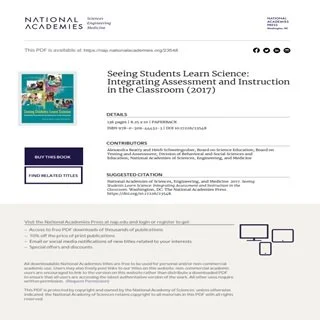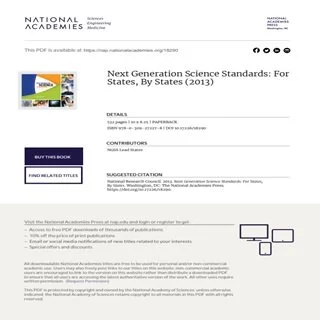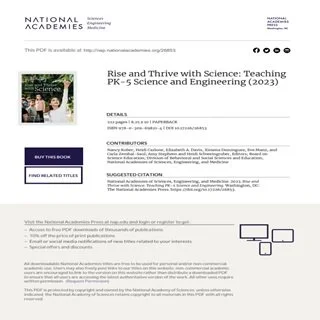By: Alexandra Beatty and Heidi Schweingruber
Science educators in the United States are adapting to a new vision of how students learn science. Children are natural explorers and their observations and intuitions about the world around them are the foundation for science learning. Unfortunately, the way science has been taught in the United States has not always taken advantage of those attributes. Some students who successfully complete their K–12 science classes have not really had the chance to "do" science for themselves in ways that harness their natural curiosity and understanding of the world around them.
The introduction of the Next Generation Science Standards led many states, schools, and districts to change curricula, instruction, and professional development to align with the standards. Therefore existing assessments—whatever their purpose—cannot be used to measure the full range of activities and interactions happening in science classrooms that have adapted to these ideas because they were not designed to do so. Seeing Students Learn Science is meant to help educators improve their understanding of how students learn science and guide the adaptation of their instruction and approach to assessment. It includes examples of innovative assessment formats, ways to embed assessments in engaging classroom activities, and ideas for interpreting and using novel kinds of assessment information. It provides ideas and questions educators can use to reflect on what they can adapt right away and what they can work toward more gradually.
National Academies of Sciences, Engineering, and Medicine. 2017. Seeing Students Learn Science: Integrating Assessment and Instruction in the Classroom. Washington, DC: The National Academies Press






